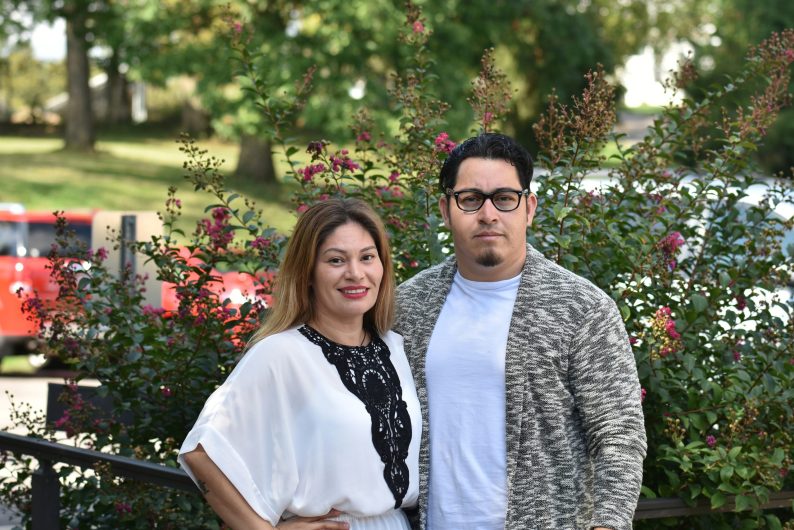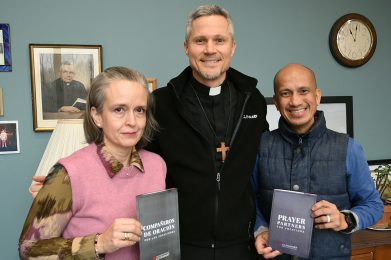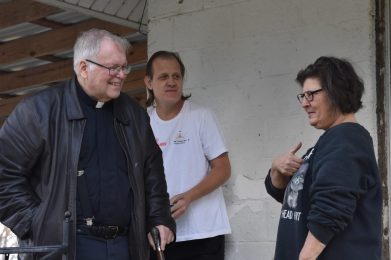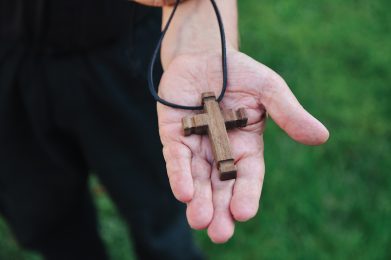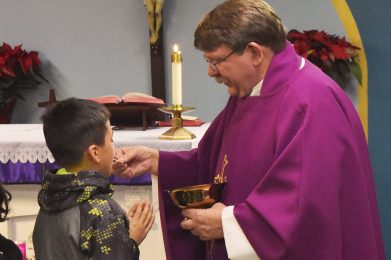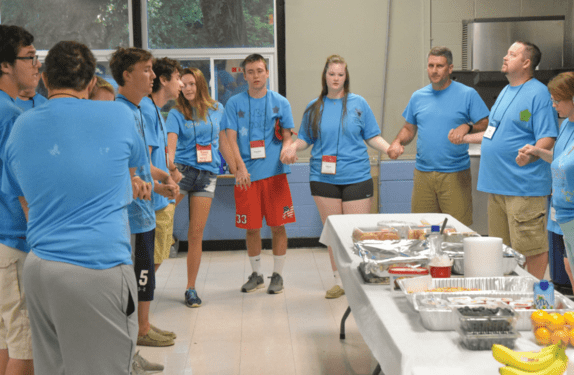Whether they have legal status or not, “the influx of immigrants has really helped to revitalize many of the small towns where Glenmary works—with small businesses, restaurants, and laborers.
The immigrants are really the backbone of these communities,” says Polly Duncan Collum, Director of Justice, Peace, and Integrity of Creation [JPIC] for Glenmary Home Missioners.
Her ministry covers the Catholic Church’s social teaching—including immigration.
“I offer formation opportunities in Catholic social teaching for parishioners and help our parishes help immigrants who may be fearing detention or deportation,“ Polly explains.
“In this climate, where the narrative is that all immigrants are criminals, we try to change that narrative,” she adds.
Marco Tavares, who is based in Bertie County, North Carolina, understands this experience firsthand. He and his wife, Daisy, migrated 25 years ago.
“We’ve been through what they (immigrants) are dealing with. You come to a place where you don’t know the culture or the language,” he reflects.
Polly stresses the importance of grounding opinions in Church teaching—not headlines or politics.
“Our Catholic Christian identity should be at the forefront of how we act in this world.” She continues, “The narrative that negatively portrays immigrants is not the majority of the people in our mission territories.”
Recognizing that local economies depend on immigrant labor, Polly works through advocacy and education to improve working and living conditions for everyone in Glenmary counties.
“Glenmary parishes are a major source of support for all immigrants, especially in this time of fear.”
Marco agrees, adding, “Migrants come to work, to give their kids a better future. They’re creating jobs and opportunities for people to feed their families. They’re hard-working people.”
The Tavareses support migrants through retreats and formation talks across the U.S. This spring, Marco spent three months in rural Colorado, Arizona, and New Mexico responding to migrant needs.
“One of the biggest things I see is how migrants enrich the Church through our traditions and our devotions,” he says.
Daisy, a certified spiritual director, gathers food, household items, and personal supplies to welcome newcomers.
She also accompanies migrants to doctor appointments and brings Communion to their homes. “People in our mission parishes would have taken a legal pathway if it had been available,” Polly adds.
“The enforcement-only approach to immigration is not enough. People are getting swept up who don’t deserve to be.” For Marco and Daisy, the reward is personal.
“Being able to see the migrants’ faces when they talk about their family, knowing that somebody cares for them—it makes you feel like a human,” Marco says.

